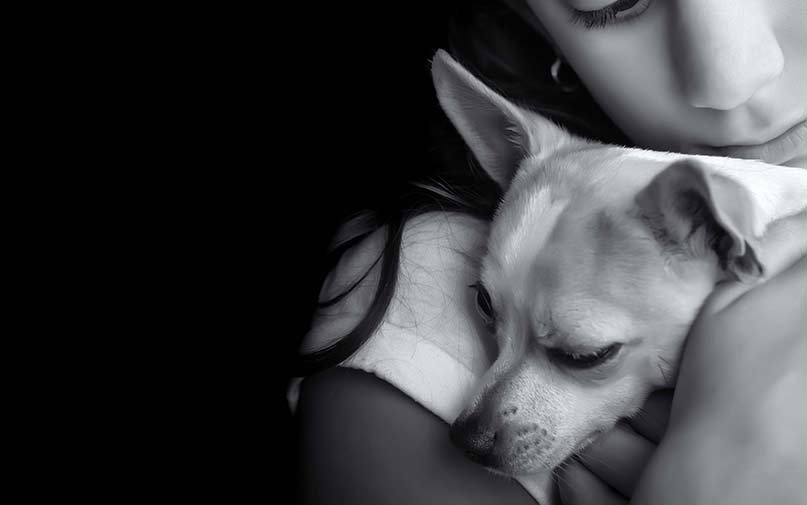
Mental health issues aren???t restricted to humans and it seems dogs can also develop depression. Petplan??takes a look at the symptoms of depression in dogs and the things you should do if you suspect your dog is depressed.
What can cause depression in dogs?
While depression, both in humans and dogs, doesn???t necessarily have a particular trigger moment, there are certain circumstances or situations that can lead to feelings of depression in dogs. The two most common are:
- Grief: Dogs can grieve very deeply if one of their family (whether on two legs or four) passes away and can pick up on feelings of sadness or depression in their human companions.
- Boredom: Your dog could also be bored. Dogs were originally bred for purpose, and can therefore grow restless or listless if all they do is stay home alone while you go to work, and then sit at your feet all evening.
What are the signs of depression in dogs?
- Hiding: Some dogs may hide naturally, particularly if they live in a busy house. However, if this is not their normal behaviour and if they???re now avoiding you regularly, then it indicates that there may be something wrong.
- Chewing or licking paws: This can be an indicator of depression, as dogs may do this as a soothing or calming mechanism.
- Lack of enthusiasm: A dog???s preferences can change over the course of their life, but if they no longer enjoy playing or going on walks like they used to, then this may be a sign of depression.
- Change in appetite: As with humans, some dogs manifest their depression by losing interest in food. This will of course lead to weight loss. Alternatively, some dogs also comfort eat, and will therefore consume more.
- Increase in sleeping: Many dogs love their sleep but if you have noticed they???re spending more time sleeping, and they ignore your presence when you???re in the house, then there may be an issue.

It???s important to remember that many of these symptoms are not necessarily indicative of depression. Some of these could have physical causes. For example, if your dog is sleeping excessively then this could be a symptom of an underactive thyroid gland.
In all cases, if you???re noting unusual behaviour in your dog then consult your vet for??advice. In serious and extreme cases professional behaviour help should be obtained and medication may sometimes be recommended as part of the therapy. However, the majority of dogs can be helped at home and there are a few ways you can help lift their spirits.
Dealing with depression:
It???s important to not reinforce the depressed state by offering treats or rewards to a dog that refuses to eat or go for walks. Instead, spend time doing something your dog enjoys and reward that healthy behaviour.
Find or create opportunities to socialise your dog with other dogs, such as visiting places where there???s likely to be lots of other dogs, dog training classes, or visit friends who have dogs. Socialising can help a dog???s disposition immensely, as other dogs can provide interaction that even the most loving human is unable to.
Many of us have to work and leave our pets for periods of time on their own but if you???ve noticed that your formerly extrovert dog is becoming quieter, it may be an idea to invest in day-care or a dog sitter.
Source File: Petplan UK



